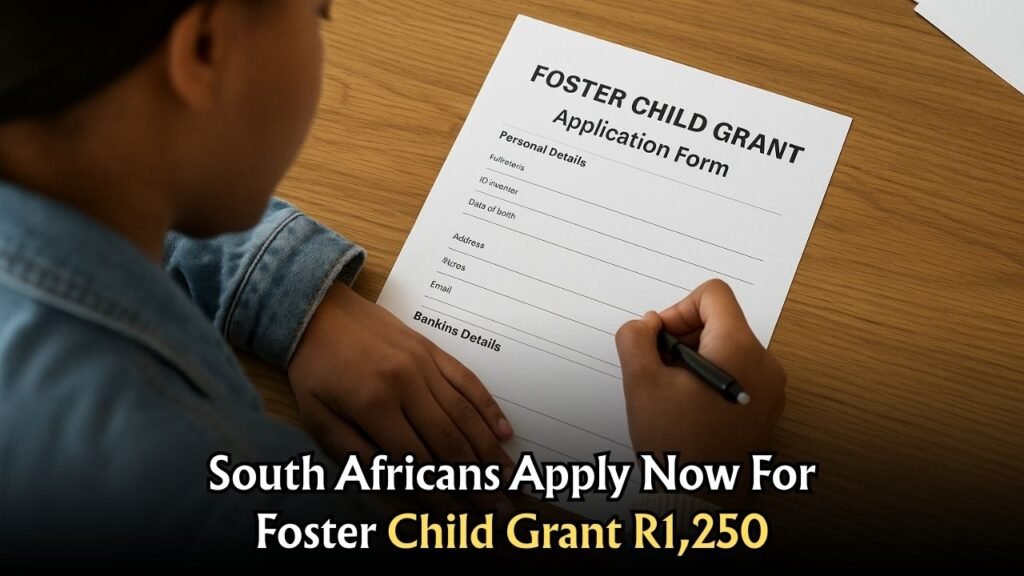Foster Child Grant Application 2023: Securing financial support for your foster child in South Africa has never been more crucial, especially as the deadline for the R1,250 Foster Child Grant approaches. With many families relying on this essential aid to ensure the well-being of foster children, it’s important to understand the application process and eligibility criteria. This grant, administered by the South African Social Security Agency (SASSA), provides vital assistance to caregivers, helping to cover the costs associated with raising a child. Whether you are a new applicant or need to renew your grant, taking timely action is key to ensuring continued support.

Understanding the R1,250 Foster Child Grant and Its Benefits
The R1,250 Foster Child Grant is a significant financial aid program designed to support foster parents in South Africa. This grant, provided by SASSA, is aimed at alleviating the financial burden of raising a foster child, ensuring they receive adequate care and opportunities for development. With the cost of living on the rise, this grant plays a pivotal role in helping families meet the basic needs, education, and healthcare costs of foster children. It underscores the government’s commitment to supporting the welfare of vulnerable children, providing a stable environment for them to thrive. For many, this grant is a lifeline, making it possible for foster parents to provide a nurturing home without being overwhelmed by financial strain. By understanding the benefits and eligibility requirements, foster families can make informed decisions about applying and continuing their support under the grant.
Eligibility Criteria for the Foster Child Grant in South Africa
Eligibility for the Foster Child Grant is determined by specific criteria set by SASSA. Primarily, the child must be under the age of 18 and officially placed in your care by a court order, which is crucial for ensuring that the grant reaches those who genuinely need it. The foster parent or guardian must be a South African citizen, permanent resident, or refugee residing in South Africa. It’s important to note that the grant is strictly for the care of the child and not for any other purposes. Additionally, the grant must be renewed every two years, with the court order reviewed to ensure the continued need for fostering. Understanding these criteria helps streamline the application process, ensuring that eligible families can benefit from this support without unnecessary delays or complications.
Steps to Apply for the R1,250 Foster Child Grant
Applying for the R1,250 Foster Child Grant involves several steps to ensure that all necessary information and documentation are accurately submitted. First, gather essential documents such as the child’s birth certificate, the court order placing the child in your care, and your South African identification document. Next, visit your nearest SASSA office to complete the application form and submit your documents. It’s advisable to arrive early and be prepared for possible queues, as this will help expedite the process. Once your application is submitted, SASSA will review it and notify you of the outcome. If approved, payments will commence, providing much-needed financial support to foster the child. Staying informed about application deadlines and keeping your documentation up to date will ensure a smooth process.
Renewal Process and Maintaining Eligibility
To maintain eligibility for the Foster Child Grant, it’s crucial to comply with the renewal process every two years. This involves re-evaluating the court order and confirming the child’s continued need for foster care. During the renewal period, ensure that all documentation is current and that any changes in circumstances are reported to SASSA. Failure to renew on time can result in the suspension of grant payments, which could significantly impact the financial stability of fostering families. It’s also important to maintain open communication with SASSA and seek guidance if there are any uncertainties or changes in the fostering arrangement. By staying proactive and organized, foster families can continue to provide a stable and nurturing environment for their children, supported by the grant’s financial assistance.



